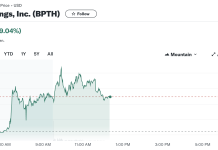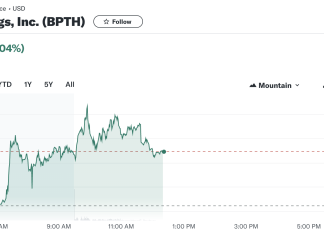Synthetic Biologics Inc (NYSE: SYN) is a diversified preclinical stage corporation that leverages microbiome functionality to develop medical therapies designed to treat and prevent GI (gastrointestinal) disease in places where the need is highly unmet. This company recently announced that it had amended its agreement with MGH (Massachusetts General Hospital) to include an exclusive license option which will consist of tech associated with the use of its SYN-020 IAP (intestinal alkaline phosphatase and intellectual property. If well-executed, this license option will further help strengthen this particular therapy’s portfolio and push Synthetic toward its goal of using SYN-020 to treat NAFLD, especially to slow down the fibrosis process linked to progressive disease.
Senior Management
Synthetics Biologics’ Chief Executive Officer, Steven Shallcross, said that they were delighted to announce the expansion in the agreement they made with Massachusetts General Hospital. The company’s CEO said that they also share the excitement for the potential SYN-020 has to treat diseases linked to liver fibrosis like non-alcoholic fatty liver disease. In addition, Mr. Shallcross said that they continue to look at this therapy as a potential treatment that can address the unmet needs for new innovative therapeutics that target gastrointestinal disorders that are caused by inflammatory and immune responses.
Under the amended agreement, Synthetic will have the option to negotiate with MGH for an exclusive global license to commercially manufacture the SYN-020 product to help both prevent and treat inflammatory and metabolic health complications associated with fibrosis or aging of the liver.
SYN-020 Phase I Trials
The company recently announced that it had completed patient observation and dosing of its 1st Phase SAD (single-ascending dose) preclinical trial of its SYN-020 therapeutics in twenty-four adult volunteers. Results from the trial showed that SYN-020 had a promising safety profile. Furthermore, the trial also recorded no severe adverse reactions.















